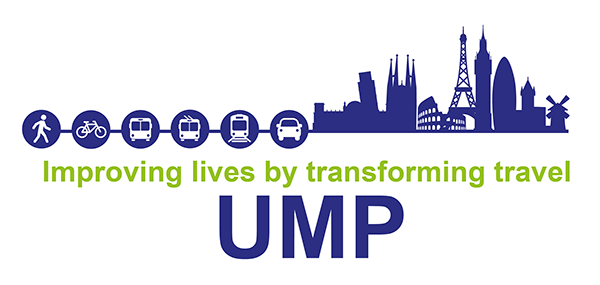
Congestion, air quality and modal shift represent the biggest challenges in our urban transport system, which can only be tackled by effective policy at a regional, local and national level. It is vital that the devolution of power and responsibility to local authorities goes hand-in-hand with a cohesive, joined-up national approach that guides and supports local policymakers.
We particularly welcome commitments to reform our outdated planning rules to promote sustainable travel. The current system focuses on road network and safety rather than ensuring all new developments take the multi-modal approach which will define our future urban transport system. It also has no real guidance for local planners on how to promote the much-needed shift in transport behaviour.
We support the pledge to promote the purchase of electric vehicles as well as reducing the need for car travel to address the pressing problem of congestion in urban areas. However, measures to encourage active travel and sustainable transport, such as car clubs, must be part of a joined-up approach. Different transport providers and government must come together to ensure that we offer consumers easy, sustainable and convenient journeys.”
Key transport policies from the Liberal Democrats include:
Infrastructure
- Invest £130 billion in infrastructure, including updating transport and energy systems, developing climate-friendly infrastructure and empowering all regions and nations of the UK.
Electric Vehicles
- Accelerate the rapid take-up of EVs by reforming vehicle taxation, cutting VAT on EVs to 5% and increasing the rate of installation of charging points, including residential on-street points and ultra-fast chargers at service 47 stations.
- Ensure 2030 every new car and small van sold is electric by 2030.
Air Quality
- Pass a Clean Air Act based on WHO guidelines, enforced by a new Air Quality Agency. The Act will enshrine the legal right to unpolluted air wherever you live.
- £2 billion of funding to extend ULEZs to ten more towns and cities in England and ensure private hire vehicles and new buses licensed to operate in urban areas are ULEV or zero emission vehicles by 2025.
- Support innovation in zero emission technologies, including batteries and hydrogen fuel cells with Government funding and a new Clean Air Fund from industry.
Active and sustainable travel
- Introduce a nationwide strategy to promote cycling and walking, including the creation of dedicated safe cycling lanes, increasing spending per head five-fold to reach 10% of the transport budget.
- Reform planning systems to promote sustainable transport and land use as well as promote cycling and walking.
- Build on the Local Sustainable Transport Fund and workplace travel plans to reduce the number of commuting cars and encourage the development of car-sharing schemes and car clubs and autonomous vehicles for public use.
Public and active transport
- Invest in public transport (rail, bus and tram), improving its reliability and affordability.
- Using taxation, subsidy and regulation to accelerate the transition to Ultra low emission transport.
- Invest in commuter routes and the integration of rail, bus and cycle routes.
- Improve disabled access to public transport via the Access for All programme.
Address
24 Southwark Bridge Road
London
SE1 9HF
